Issue Editorial Board
 0000-0001-8475-339X
0000-0001-8475-339X
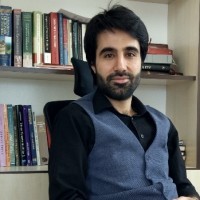
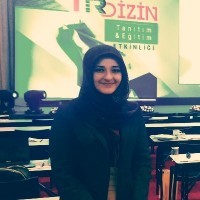
 0000-0001-5008-7325
0000-0001-5008-7325

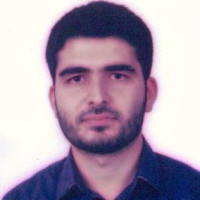
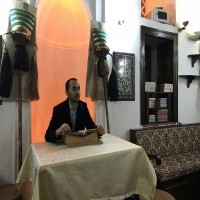
 0000-0002-5140-9709
0000-0002-5140-9709
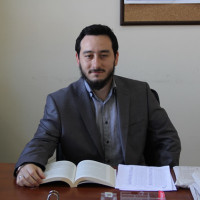

Issue Reviewers





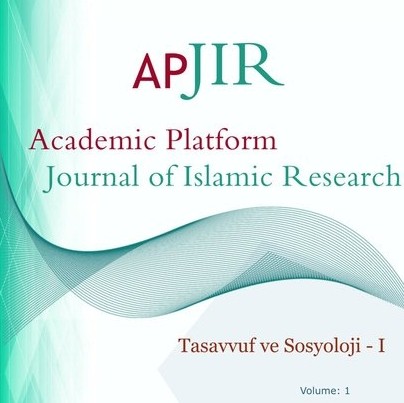


 0000-0002-6396-374X
0000-0002-6396-374X


 0000-0002-8196-4105
0000-0002-8196-4105






Aim & Scope
Journal of Islamic Civilization Studies aims to contribute to the widening of the circle of scientific knowledge by publishing research articles in the basic field of Theology within the framework of Islamic Civilization through a scientific process.
Journal of Islamic Civilization Studies publishes original research articles on
- History of Islam and Islamic Arts
- Turkish-Islamic Literature
- Islamic Thought and Schools (Islamic Philosophy, Kalam, History of Islamic Sects)
- Islamic Law
- Hadith
- Tafsir
- Sufism
- Arabic Language and Rhetoric
within the framework of Islamic Civilization.
Author Guidelines
Requirement for Submission
While we respect the choices of authors, we expect articles submitted to our journal to meet the following requirements in accordance with our publication policy.- The study should be an original research article written in one of the fields specified in our Aim and Scope page and related to Islamic Civilization.
- The study must be prepared in accordance with ethical guidelines. You can review our Ethical Principles page.
- The study must address a problem and offer either a solution or a proposed solution to the problem it addresses.
- The study should cover an important topic that will make a contribution to the field and should be different from previous studies.
- If necessary, references should be made to both classical sources and contemporary research.
- The abstract should reflect the significance, purpose, scope, boundaries and conclusion of the study in the shortest possible form.
- The introduction of the study should consist of the background of the problem being addressed and an expression of what is to be done to solve or propose a solution to the problem.
- The study should not exceed 9000 (nine thousand) words, including bibliography, footnotes and abstracts.
- The language of the study should be Turkish or English. (As of 2025, Arabic manuscripts are no longer accepted.)
- The work should be free of spelling and punctuation errors.
- Footnotes and bibliography should be according to the Isnad Citation Style and should be error-free.
- All authors must be at least PhD students.
If your manuscript meets the above requirements, format it as follows and submit it. You can visit the Process Guide for Authors page for submission and processes.
Manuscript Editing
1. Contents
- Turkish manuscripts should include both Turkish and English titles, abstracts and keywords. English manuscripts do not need Turkish content.
- Abstracts should consist of a maximum of 250 words and should be written in a single paragraph. (Since we adopt the Isnad Style, we accept up to 250 words, but we recommend that abstracts be under 150 words.)
- The number of keywords should be between 5-8, the first keyword should be the relevant department, and then they should be ordered from general to specific.
- For the spelling of non-Turkish proper names (religion, sect, person, sūrah, etc.), book titles and concepts, the Türkiye Diyanet Vakfı İslâm Ansiklopedisi should be followed, and the Encyclopedia of Islam should be taken into account for English content.
- References should be indicated as footnotes in the study.
- It is essential that the study includes a comprehensive bibliography, which should encompass all sources cited within the text.
- The doi link of the works that have a doi should be added at the end of each reference. You can use the Crossref Link Reference to find the dois of the works in your bibliography.
- Contribution rate should be declared at the end of multi-authored studies. To access the statement of contribution form, please click here.
2. Formatting
- Although we have a large team, since we work on a voluntary basis, we cannot provide services that require professionalism such as proofreading and layout. Therefore, we expect our authors to make the necessary arrangements.
- You can apply the edits below on your manuscript, or you can use our templates for Libreoffice Writer and Microsoft Office Word that include these edits.
- Gentium Plus should be used as the text font, and the font size should be set to 11 points in all text except abstracts, keywords, tables and footnotes.
- Footnotes, bibliography, numbering, tables, figures and citations should be organized according to the Isnad Citation Style 2nd Edition.
- Author information should not be included in the article file.
- The title page with author information should be uploaded as a separate file.
- The uploaded files must be in docx or odt format.
2.1. Page Style
- Right and Left 3.5 cm.
- Top and Bottom 4 cm.
- All headings in the text should be 11 points.
2.2. Abstracts and Keywords
- Gentium Plus 9 points, top 0, bottom 6 pt (0.20 cm)
- Justified, no indentation.
- Single line spacing.
- There should be no space between the title and the text.
- The word "Keywords" should be bold and end with a colon.
- There should be no blank line between the keywords and the abstract.
2.3. Heading
- All headings should be in 11 point font and bold.
- Hierarchy should be determined by numbering.
- There should be 6 pt (0.20 cm) space above the headings and 0 below them.
- All headings except Abstract should be indented 1 cm.
2.3.1. Numbering of Headings
- Headings should be numbered as
1.
1.1.
1.1.1.
while Introduction, Conclusion and Bibliography should not be numbered.
2.4. Text
- Text should be justified
- All text except Abstract, Keywords and Footnotes should be in Gentium Plus, 11 pt.
- The first line of paragraphs should be indented 1 cm.
- Indent: 0 above, 6 pt (0.20 cm) below.
2.5. Quotations
- Quotations of less than 40 words should be enclosed in quotation marks
- Quotations of more than 40 words should be as follows.
10 pt,
1 cm indented (all paragraph),
single line spacing,
above and below paragraph 6 pt (0.20 cm).
2.6. Footnotes and Bibliography
Footnotes and bibliography should be given according to ISNAD Citation Style 2nd Edition.
Footnotes
- Gentium Plus 9 pt.
- Justified
- Single line spacing.
- Above and below 0.
- Hanging 0.6 cm
- First line should be intended one tab
Bibliography
- Gentium Plus 10 pt.
- Justified
- Single line spacing.
- Above 0, below 3 pt (0.10 cm)
- Hanging 1 cm.
We recommend using Zotero or a similar application for footnotes and bibliography.
2.7. Tables and Figures
- Tables should not be of fixed size, but should be adjusted to fit automatically on the page from the table specifications.
- Table and figure captions should be numbered as Table 1:, Figure 1:.
- All headings should be in normal type (not bold or italicized).
- Headings should be Gentium Plus, 9 pt.
- In headings, the initial letter of each word should be capitalized.
- Table contents should be 9 pt, single line, top-bottom 0.
- The first line of the table should be bold.
- The details of what is written here, and any necessary rules not included here, can be found in the ISNAD Citation Style Online Manual.
- You can also write your work on the template we have prepared according to the regulations here.
- You must have Gentium Plus font installed on your computer for the template to display properly.
- Click here to download the Gentium Plus font if you do not already have it installed.
Templates for Microsoft Word
Templates for Libreoffice Writer
Please let us know if you think that there are any inconsistencies or errors in the information above and templates with the Isnad Style.
Journal email: imad@dpu.edu.tr
Editor email: yusuf.sansarkan@dpu.edu.tr
Ethical Principles and Publication Policy
Ethical Principles
Authorship and Contributorship
Who is an author?
As recommended by the ICMJE, an author is a person who meets the following four conditions.
- Substantial contributions to the conception or design of the work; or the acquisition, analysis, or interpretation of data for the work,
- Drafting the work or reviewing it critically for important intellectual content,
- Final approval of the version to be published,
- Agreement to be accountable for all aspects of the work in ensuring that questions related to the accuracy or integrity of any part of the work are appropriately investigated and resolved.
Those who meet all four criteria are designated as authors. Those who do not meet them are considered non-author contributors.
How is the contribution rate determined?
The contribution rates of the authors included in the study are determined by the authors of the study. Our journal expects the contribution rate of the first author to be higher, but the responsibility in this regard belongs to the authors and the final decision will be made according to their statement. The following points should be noted about co-authorship.
- Each coauthor of the manuscript should directly aware that the submission is being made in their name.
- Contribution rates of the authors involved in the study should be indicated.
Author Authentication
- All authors contributing to the study must be a member of Dergipark and have ORCID.
- The contact information of all authors should be up-to-date and accurate, and the journal management should be able to reach them when necessary.
Peer Review Process
- We forward the manuscripts submitted to our journal to two reviewers for evaluation.
- We select reviewers based on their expertise in the subject matter of the submitted work.
- We make sure that the reviewers are not from the same institution as the author.
- We delete author information from the manuscripts we send to reviewers.
- We do not send the files returned from the reviewer to the author for revision until we are sure that the information belonging to the reviewer does not remain.
- We try to ensure that the review is unbiased and accurate by hiding the details of the reviewers and authors from each other.
- Since we have a field editor in every discipline we accept for publication, we do not accept reviewer suggestions from authors.
- If the reviewer discovers the identity of the author, we ask them to stop the review and return the manuscript to us.
- We check whether the reviewers' citations to their own work are necessary and remove the unnecessary ones before sending the manuscript to the author so that blind reviewing is not harmed.
- When we find that the reviewer has secretly added their work to the bibliography, we reject the review and warn them.
- Since we work on a voluntary basis, we cannot pay our reviewers, but we publish the reviewers' names below the issue.
Concurrent Submission
A manuscript submitted to our journal may not be submitted simultaneously to other journals. If this is reported to us:
- We suspend review in under way and consult with other journals editor to conduct investigation.
- We compare manuscripts that submitted first, check contents and author list.
- If the manuscripts are same or similar but the authors are different, we will reject the article and take steps to prevent the authors from submitting articles to our journal.
- If both manuscripts are by the same author, we contact the author to clarify the situation.
- If the author's response is that the error is the result of a misunderstanding or ignorance, and this response is satisfactory, then we ask the author to specify how his/her manuscripts in other journals should be handled. (If he/she wants revision or rejection of other manuscript)
- If the author's answer is not satisfactory, we reject the article. We notify all authors and reviewers. We inform the author's institution and the author's supervisor.
- Click here for COPE's Concurrent Submission of a Manuscript to Multiple Journals flowchart.
Plagiarism
Plagiarism is presenting someone else's views, thoughts and expressions as one's own without proper referencing. We try to prevent this kind of fraud by similarity testing all manuscripts submitted to our journal, but we may also encounter situations that exceed the test. When we suspect or receive a report of plagiarism, we take the following steps, regardless of whether the work is in the process of publication or has already been published.
Plagiarism in a Submitted Manuscript
- If the work is in review, we inform the reviewers and stop the process.
- We check degree of copying.
- In the case of minor copying of short phrases, we inform the author and ask him to correct the manuscript.
- In the case of major plagiarism, we contact the authors and notify them.
- If we do not receive satisfactory or no response from the author, we reject the work. We inform the referees, the author's institution and supervisor.
- When we receive a satisfactory answer from the author that he/she has made a mistake, we ask him/her to decide whether to reject or correct the article.
Plagiarism in a Published Article
- We check degree of copying.
- In the case of minor copying of short phrases, we inform the author and ask him to publish correction.
- In the case of major plagiarism, we contact the authors and notify them.
- If we do not receive satisfactory or no response from the author, we withdraw the article, inform the author's institution and supervisor.
- When we receive a satisfactory answer from the author that he/she has made a mistake, we ask him/her to decide whether to withdraw the article or publish correction.
In the case of self-plagiarism or duplication, we follow the same steps as listed above.
Click here for COPE's plagiarism in submitted manuscript flowchart, here for plagiarism in published article flowchart, and here for self-plagiarism flowchart.
Fabrication
- The data in the manuscripts submitted to the journal must be verifiable.
- If there is a suspicion that the data are fabricated, the issue is investigated by us.
- The author is obliged to verify the data as requested by the journal.
- If the author cannot provide a satisfactory answer, the manuscript is rejected or, if published, withdrawn and the author's institution is notified.
- Click here for COPE's fabricated data in a submitted manuscript flowchart and here for fabricated data in a published article.
Citation Manipulation
In order to increase the citation rate
- Authors referring to their own work,
- Reviewers asking authors for citations,
- Editors asking authors for citations for themselves or for the journal,
- Editors or reviewers inserting their own sources into the article,
The above-mentioned are considered as citation manipulation and are not accepted. If this situation is detected, those concerned are warned and the added citations are deleted. If the wrongly cited article is published, it is withdrawn or a correction is published.
Whether the citation is unfair or not is determined by the relevance of the cited source. This is also the rule when referees cite their own sources when requesting a correction.
Conflicts of Interest
- As we are a non-profit, free journal, we do not make any financial gain from the articles we publish.
- We keep communication with authors and reviewers at a formal level and do not privilege any author.
- We process articles according to the date of receipt and publish them according to the date of acceptance.
- We make efforts to send manuscripts to reviewers who have no relationship with the author.
- We do not involve editors who have an inescapable relationship with the author in the publication process.
- When the editorial team or someone from our institution submits a manuscript to our journal, we follow the same procedures as for other manuscripts.
Data Availability
- If the data used in the studies published in our journal are open to access, the information required to access them (DOI, etc.) should be indicated.
- If the data used in the study are not accessible, the reason for this should be clearly stated.
- If the data used in the study requires permission, the necessary permission must be obtained and uploaded to the system with the article file as an additional file.
Intellectual Property
- The copyrights of the articles published in our journal belong to their authors. Except for the reproduction of the data presented in the studies for commercial purposes, it is free to use with attribution, including for commercial purposes.
- On the other hand, the data in the articles sent to us must be used in accordance with the licenses of the sources from which they are taken. If, during or after publication, we suspect or receive a report of improper use of data, we investigate the matter.
- If, after contacting the author, it becomes clear that a breach has occurred, we reject the publication in process and withdraw the published article.
Complaints and Appeals
- The author can appeal the rejection of his/her manuscript. In this case, the editorial team is obliged to provide the author with a valid justification. If we are unable to provide the author with a justification, we will apologize to him/her and re-process the manuscript.
- The author's objections and complaints about the processes and the time taken during the processes are evaluated and responded to by us. If it is determined that the author's work has been deliberately delayed, the relevant editor will be warned and, in the event of a recurrence, suspended.
- The author's complaints of ethical misconduct against the editorial team are reviewed by the editorial team and, if necessary, the journal owner and our publisher. If the editors are found to have committed ethical misconduct, the relevant editor will be suspended from duty.
- Other complaints of ethical misconduct by the author are handled within the COPE framework according to the Ethical Principles above.
- Authors can contact us for the steps to withdraw the manuscript and publish a correction article.
- You can contact us via Dergipark or via e-mail and phone on our contact page.
Ethical Oversight
If we suspect that a study that has been published or is in the process of publication has ethical problems, such as lack of ethics clearance etc., we take the following steps.
- We inform reviewers and field editors that we will investigate.
- We ask the author to provide the necessary information.
- In case the author gives a satisfactory answer, we apologize to him and continue the process.
- If the author does not respond, or if the response is not satisfactory, we inform him/her that we are stopping the process and notify the relevant institution.
- If the problem is solved as a result of communication with the institution, we continue the process, otherwise we report the situation to the higher institution and inform the reviewers.
Publication Policy
The Journal of Islamic Civilization Studies is an academic journal that aims to publish quality scientific studies through a correct process and to contribute to the development of scientific knowledge. In line with this goal, it is essential that all stakeholders involved in the publication process of the journal (authors, publisher, referees and editors) comply with ethical principles.
Our journal determines its ethical principles and addresses violations in line with the guidelines and policies published by the Committee on Publication Ethics (COPE) in open access. Yükseköğretim Kurumları Bilimsel Araştırma ve Yayın Etiği Yönergesi and Tübitak Araştırma ve Yayın Etiği Kurulu Yönetmeliği are also guidelines that should be counted among our reference sources.
As publishers and editors, it is imperative that we adhere to the aforementioned guidelines and ethical rules and do not allow ethical violations under any circumstances, as well as provide solutions to the situations that occur. Likewise, those who submit manuscripts to our journal or review the manuscripts should not violate the ethical principles and should inform the editor in cases that occur and know that they can file a complaint in case of irregularities.
Submission
- Our journal publishes only research articles. Studies such as book reviews, review articles, etc. are not accepted.
- The submitted studies should contribute to the expansion of the circle of scientific knowledge in accordance with our purpose of existence.
- The editor and the editorial board have the authority to reject directly the manuscripts that do not meet the 12 items “Conditions to be met by the manuscript to be submitted” stated on our Writing Rules page.
- Our journal publishes studies in Turkish and English.
- All authors of the submitted studies must be at least PhD students.
- Only one study by the same author can be published in one issue.
- At most one our faculty member's article can be published in one issue.
Publication Process
- You can find our detailed publication process on our Process Guide for Authors page.
Submission Acceptance Dates
- Our journal is always open for article submissions.
Publication Period
- Our journal is published three issues a year in April, August and December.
Citation and Reference Style
- The Journal of Islamic Civilization Studies requires the use of Isnad Citation Style 2nd edition in citation and bibliography writing.
Similarity Rate Limit
- The maximum similarity rate is accepted as 15% in our journal.
Publication and Review Fees
- The Journal of Islamic Civilization Studies does not charge any fee to the authors for the article evaluation and publication process.
Copyright
- Copyrights of the published articles belong to their authors.
Price Policy
Journal of Islamic Civilization Studies does not charge any fee from the authors for the article evaluation and publication process.


